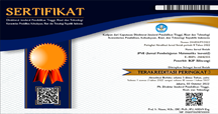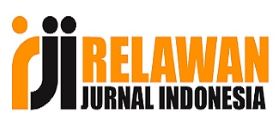PENGARUH MODEL PEMBELAJARAN ECIRR DAN PQ4R TERHADAP KEMAMPUAN PEMECAHAN MASALAH MATEMATIS DITINJAU DARI SELF EFFICACY
DOI:
https://doi.org/10.22460/jpmi.v5i3.10682Keywords:
ECIRR learning model, PQ4R learning model, mathematical problem solving ability, self efficacyAbstract
This research includes quantitative research using the Quasi Experimental Design method to examine the effect of differences in the use of the ECIRR learning model, the PQ4R learning model and the Direct Instruction model on mathematical problem solving abilities in terms of students' self-efficacy. Data collection techniques used are tests, questionnaires and documentation. Sampling using Cluster Random Sampling. The population in this study were seventh grade students of SMP Darul Ulum Sekampung. Class VII.2 as the experimental class 1 using the ECIRR model, class VII.1 as the experimental class 2 using the PQ4R model, and class VII.3 as the control class using the Direct Instruction model with fractional material. Data analysis used two-way ANOVA of unequal cells. The results of this study are (1) there is an effect of differences in the use of the ECIRR learning model, the PQ4R learning model, and the Direct Instruction model on mathematical problem solving abilities, (2) there is an effect of mathematical problem solving abilities between students who have high, medium, and low self-efficacy. , and (3) there is no interaction between the learning model and self-efficacy on students' mathematical problem solving abilities.
References
A., A., & S., H. (2017). Faktor yang Mempengaruhi Rendahnya Hasil Belajar Siswa MTs Iskandar Muda Batam. PYTHAGORAS: Jurnal Program Studi Pendidikan Matematika, 6(2), 175–186.
Amandha, B., & Ahmad, R. (2020). Academic Self-Efficacy influencd is seen in term of Learning Motivation Pendahuluan. Jurnal Neo Konseling, 2(4), 1–6. https://doi.org/10.24036/00304kons2020
Ansori, M., & Iswati, S. (2017). Metodologi Penelitian Kuantitatif (p. 45). Airlangga University Press.
Ardiansyah, A., Dirgantara, Y., Agustin, R. D., & Sugilar, H. (2019). Penerapan Model Pembelajaran ECIRR (Elicit, Confront, Identify, Resolve, Reinforce) untuk Meningkatkan Kemampuan Pemecahan Masalah Peserta Didik pada Materi Fluida Statis. Jurnal Penelitian Pembelajaran Fisika, 10(1), 77–82.
Basito, M. D., Arthur, R., & Daryati, D. (2018). Hubungan Efikasi Diri Terhadap Kemampuan Berpikir Tingkat Tinggi Siswa SMK Program Keahlian Teknik Bangunan Pada Mata Pelajaran Mekanika Teknik. Jurnal PenSil: Pendidikan Teknik Sipil, 7(1), 21–34. https://doi.org/10.21009/pensil.7.1.3
Bihamdin, H. (2019). Perencanaan Pembangunan Partisipatif Desa (p. 179). Grup Penerbit CV Budi Utama.
D., P., M., A. F., & U., H. U. (2020). Permasalahan Pemahaman Konsep Siswa pada Pelajaran Matematika Kelas 3 Semester 1. Manazhim, 2(1), 45–53.
Kristanto, V. H. (2018). Metodologi Penelitian Pedoman Penulisan Karya Tulis Ilmiah (KTI) (p. 22). Grup Penerbitan CV Budi Utama.
Lena, M. S., Netriwati, & Aini, N. R. (2019). Metode Penelitian (p. 101). CV IRDH.
M., A. T., P. A., Y., Rasinus, S. D. C., J., N. C. S., A., Purba, B., W. R. E. P. S., M., Purba, B., Karwanto, & B. P., A. (2020). Inovasi Pendidikan Konsep, Proses dan Strategi (p. 3). Yayasan Kita Menulis.
Moma, L. (2014). Self-Efficacy Matematik Pada Siswa SMP. Moshrafa: Jurnal Pendidikan Matematika, 3(2), 85–94. https://journal.institutpendidikan.ac.id/index.php/mosharafa/article/view/mv3n2_3/234
Muharram, F., Shafira, N., Sartika, F., & N. C., A. (2020). Optimalisasi Peran Cendikiawan Dalam Meningkatkan Potensi Lokal dan Daya Saing Global Guna Menghadap (Guepedia (ed.); p. 27).
Ningsih, W. F., & Hayati, I. R. (2020). Dampak Efikasi Diri terhadap Proses & Hasil Belajar Matematika ( The Impact Of Self-Efficacy On Mathematics Learning Processes and Outcomes ). Journal on Teacher Education Research & Learning in Faculty of Education, 1(2), 26–32.
Putra, F. G. (2016). Pengaruh Model Pembelajaran Reflektif dengan Pendekatan Matematika Realistik Bernuansa Keislaman terhadap Kemampuan Komunikasi Matematis. Al-Jabar : Jurnal Pendidikan Matematika, 7(2), 203–210.
R., U. D., S., W. M. Y., & T., D. A. (2019). Analisis Kesulitan Belajar Matematika dalam Menyelesaikan Soal Cerita. Mathline : Jurnal Matematika Dan Pendidikan Matematika, 3(4), 534–540.
Rinaldi, A., Novalia, & Syazali, M. (2020). Statistika Inferensial Untuk Ilmu sosial dan Pendidikan. PT Penerbit IPB Press.
Sari, D. P., & Amran. (2020). Penerapan Pembelajaran Kooperatif Tipe Jigsaw Terhadap Keyakinan Diri (Self-Efficacy) Siswa. Al - Irsyad : Jurnal Pendidikan Dan Konseling, 10(2), 213–222. http://jurnal.uinsu.ac.id/index.php/al-irsyad/article/view/8529
Siregar, N. H., & Syafari. (2017). Kemampuan Pemecahan Masalah Matematis Siswa dalam Pembelajaran Matematika Menggunakan Model Pembelajaran PBL dan TPS. Jurnal Semnastika Unimed, 4. http://digilib.unimed.ac.id/id/eprint/26922
Subaidi, A. (2016). Self-efficacy Siswa dalam Pemecahan Masalah Matematika. Sigma, 1(2), 64–68. doi: http://dx.doi.org/10.0324/sigma.v1i2.68
Sunaryo, Y. (2017). Pengukuran Self efficacy Siswa dalam Pembelajaran Matematika di MTs N 2 Ciamis. Teorema, 1(2), 39–44. https://doi.org/10.25157/.v1i2.548
Ulfa, M. (2019). Strategi Preview, Question, Read, Reflect, Recite, Review (PQ4R) pada Pemahaman Konsep Matematika. Mathema Journal, 1(1), 48–55.
Wijayanto, J. (2018). Implementasi Model Pembelajaran Pq4R Dengan Pendekatan Saintifik pada Peningkatan Kemampuan Pemecahan Masalah Matematis Siswa. Kontinu: Jurnal Pendidikan Didaktik Matematika, 1(1), 43–51.

















